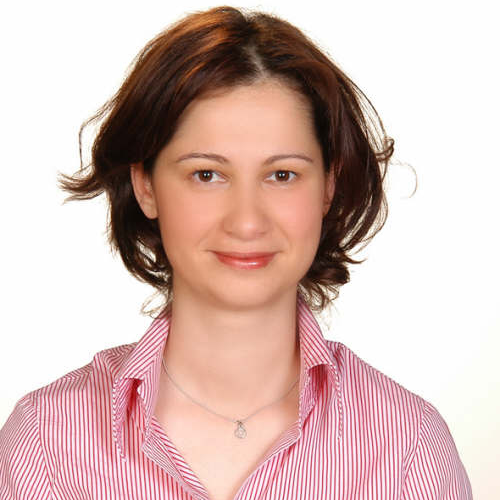
Özlem
Keskin Özkaya, PhD
"Currently, Prof. Özlem Keskin Özkaya is a professor in the Chemical and Biological Engineering at Koc University, Istanbul-Turkey. She received her Ph.D. degree in Chemical Engineering in 1999, at Bogazici University. Then, she continued as a postdoctoral fellow at the National Cancer Institute-National Institutes of Health, U.S.A., between 1999− 2001. She acts as the director of the Graduate School of Sciences & Engineering, associate dean of the College of Engineering at Koc University. She is an elected member of the Science Academy, Turkey and EMBO, European Molecular Biology Organization. She is the recipient of several awards including TÜBİTAK Science Award, 2012, TWAS (The Academy of Sciences for the Developing World) Encouragement Award, 2009 and UNESCO-L'OREAL Co-Sponsored Fellowship Award for Young Women in Life Sciences, 2005. She acts as an associate editor in Plos Comp Biol, Plos One and Frontiers Bioinformatics and she is in the Editorial Board of Bioinformatics Advances. Dr. Keskin is a computational biologist using fundamental theories and methods of physical and computational sciences and engineering for addressing complex problems in protein science. Her work has been essential to understanding the physical bases of protein-protein interactions (PPIs) and predicting new interactions; extracting biologically relevant information from large databases, including knowledge-based potentials for PPIs, structure-activity relationships for drugs, and hot spots at protein interfaces; elucidating proteins' functional mechanisms by determining their structural dynamics. Modeling and predicting PPis has been a major research area in her lab. She developed novel machine-learning-based methods to predict existing and new PPis and implemented these methodologies in the PRISM interface made accessible to the broad community. PRISM proved useful in structural characterization of protein complexes involved in TLR, MAPK, and p53 signaling pathways and elucidation of the mechanisms of oncogenic mutations and inhibition with focus on K-Ras4B driven cancers. Her lab emphasized that if a protein uses the same binding site to bind to multiple proteins, only one of the interactions is possible, and no simultaneous interactions can take place. Currently, her lab is constructing the structural human interactome with the help of artificial intelligence (AI)-based modules and predicting host-pathogen interactions based on the hypothesis that interface mimicry is essential to defining host-pathogen interactions. Her work received more than 12000 citations and she has an h-index of 54 according to Google scholar."